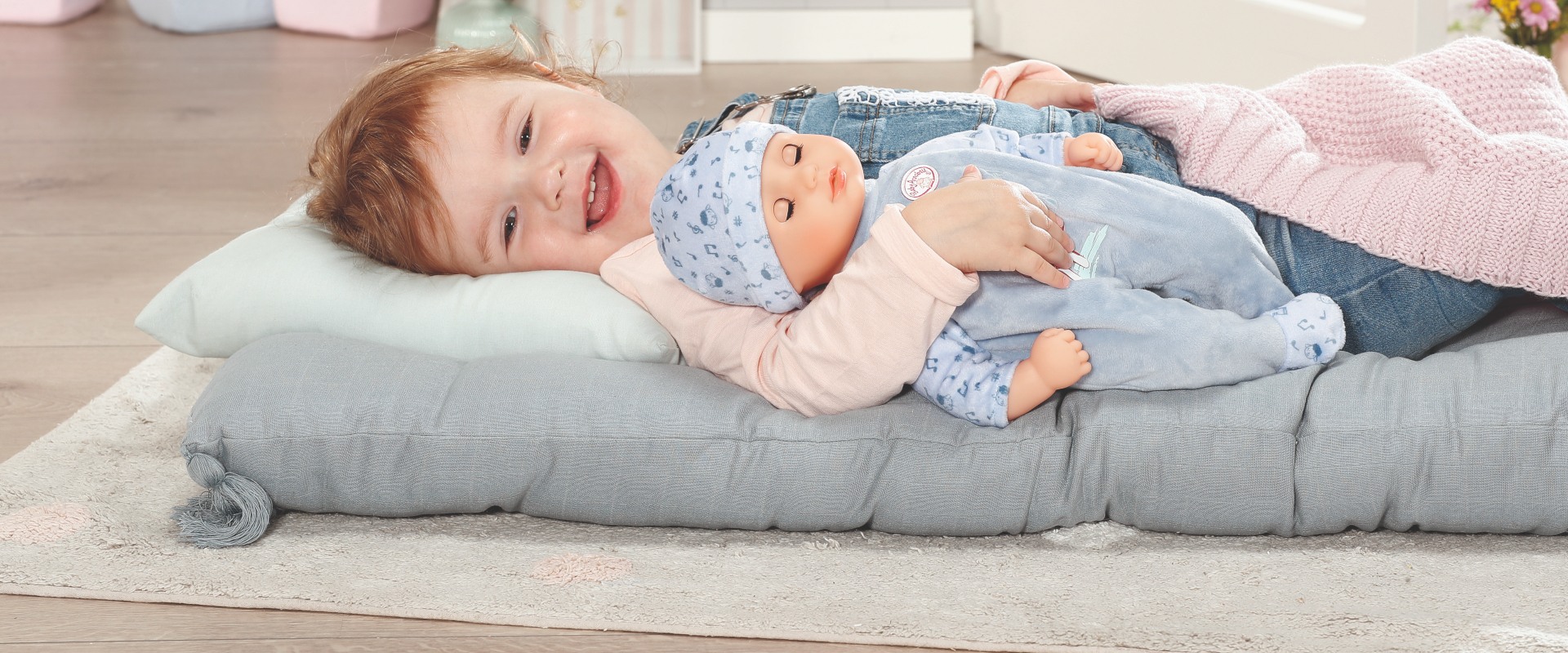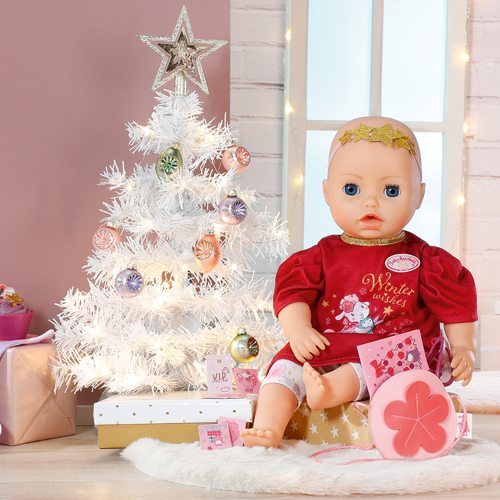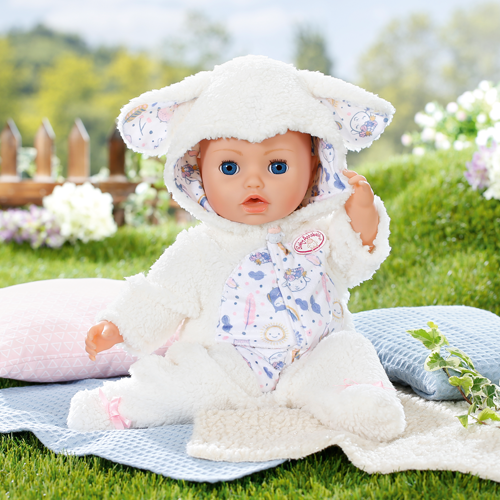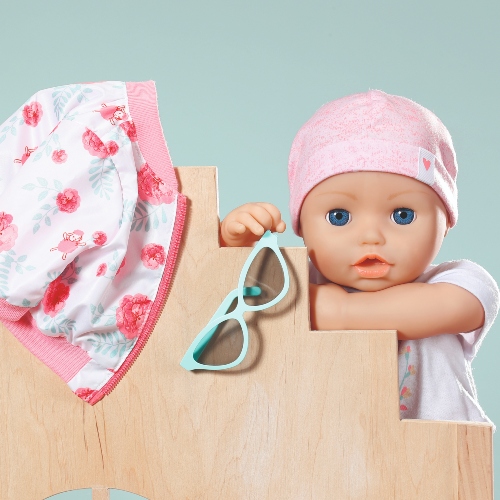Between the ages of one and three, children’s brains undergo huge changes as they grow both mentally and physically. As caregivers, we can nurture development towards toddler milestones by providing support and a safe, loving environment where children are free to explore, experiment and use their imagination.
Here, we take a look at how dolls not only inspire imagination in younger toddlers, but also promote physical, emotional and linguistic skills and help them to reach those all-important toddler developmental milestones.
Fine motor and physical skills
At this tender age, toddlers are on a journey of discovery about themselves and their surroundings, much of which happens via their physical skills. For example, mastering the ‘pincer grip’ opens up a world of exciting possibilities – from eating finger foods to expressing themselves with crayons and, later in life, even using a computer mouse.
But did you know that doll play can help with achieving physical milestones for toddlers? For younger toddlers at this age, specifically designed smaller Baby Annabell dolls – that’s our ‘Baby Annabell Little’ range at 36cm in size – are ideal for easy grasping and carrying around. Whether children are brushing and styling the long, flowing hair of Baby Annabell Little Sophia, or carefully dressing Baby Annabell Little Sweet Princess in her dress, shoes and tiara, doll play can help your child perfect their newfound skills… and have lots of fun doing so!
Emotional and social development
When you observe a child taking care of their baby doll, it’s no mystery that this kind of imaginative play helps in reaching emotional milestones for toddlers. Replicating everyday routines and scenarios with their baby gives little ones the opportunity to process and understand their own thoughts and feelings; developing sympathy and empathy.
Carrying out nurturing tasks for their doll helps toddlers foster compassion and a sense of responsibility, enabling them to grow into kind, caring children and adults. This social development is a joy to behold; prepare for your heart to melt as you listen to your toddler whisper words of comfort to Baby Annabell Little Alexander, and watch them lovingly lay him down to sleep.
And let’s not forget about social skills. Factoring another person (their baby doll) into play teaches toddlers patience and the importance of sharing and turn-taking. These skills are central to helping them forge friendships in preschool and – in the near future – primary school.
Vocabulary and language skills
Children naturally attempt to talk their way through their play and explain what they’re doing – whether it’s to their baby doll, caregivers or simply out loud to themselves. In turn, this helps them understand instructions and directions, as well as boosts their confidence in communication and expression.
And, by mimicking eating, bathing and sleeping routines with Baby Annabell Little Annabell, your little one can work towards those toddler pretend play milestones and improve their vocabulary surrounding daily rituals. Nurture your little one’s language skills further with the Baby Annabell Little Play Outfit and Baby Annabell Lunch Time Table. Toddlers will love to narrate what they’re doing, from bundling Little Annabell up in her pastel-perfect outfit to giving her the bottle, wiping her little mouth and popping in her dummy.
Feeling inspired to help your little one reach those toddler milestones? Discover more benefits of doll play in young children, or explore our Baby Annabell Little range for younger toddlers.



